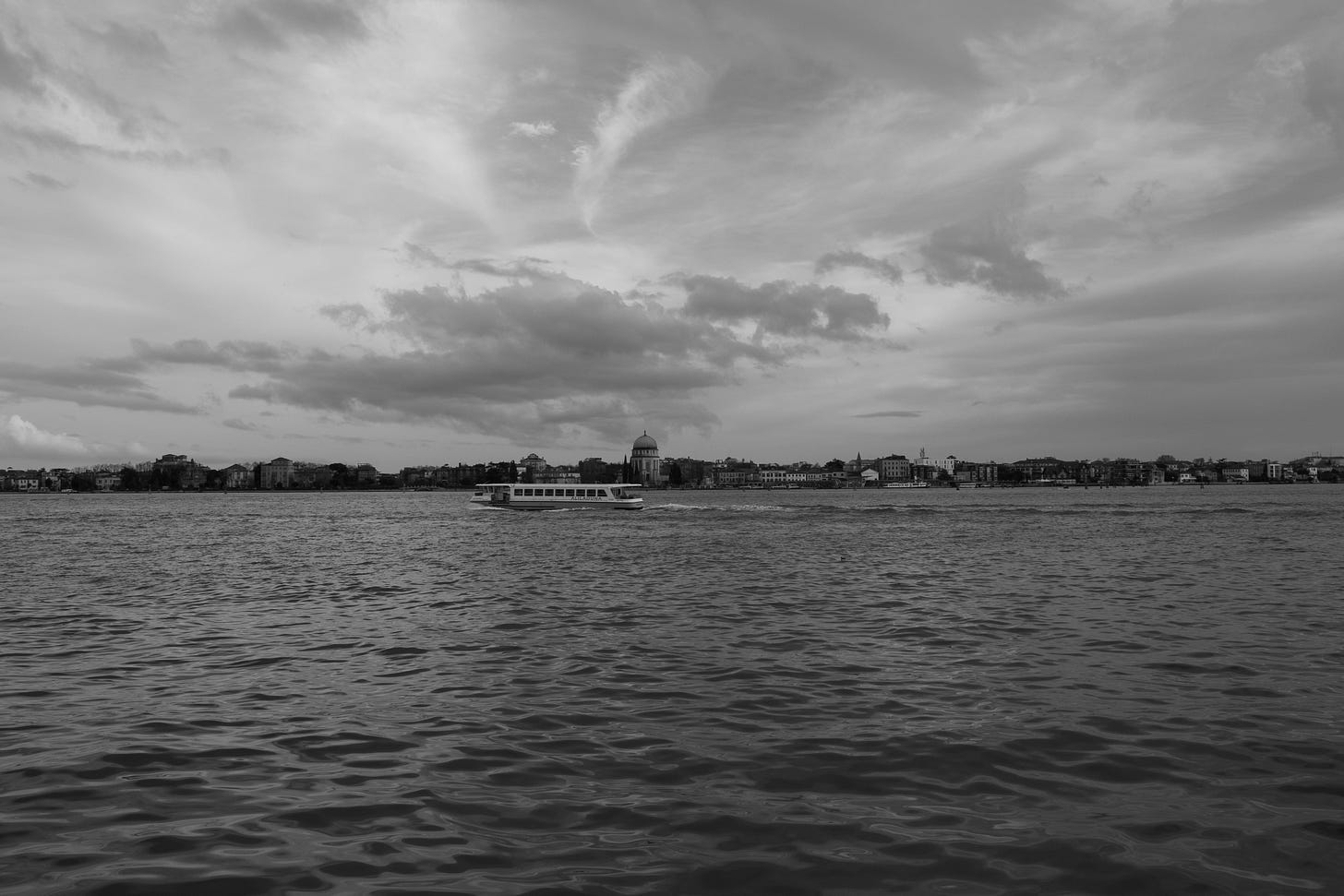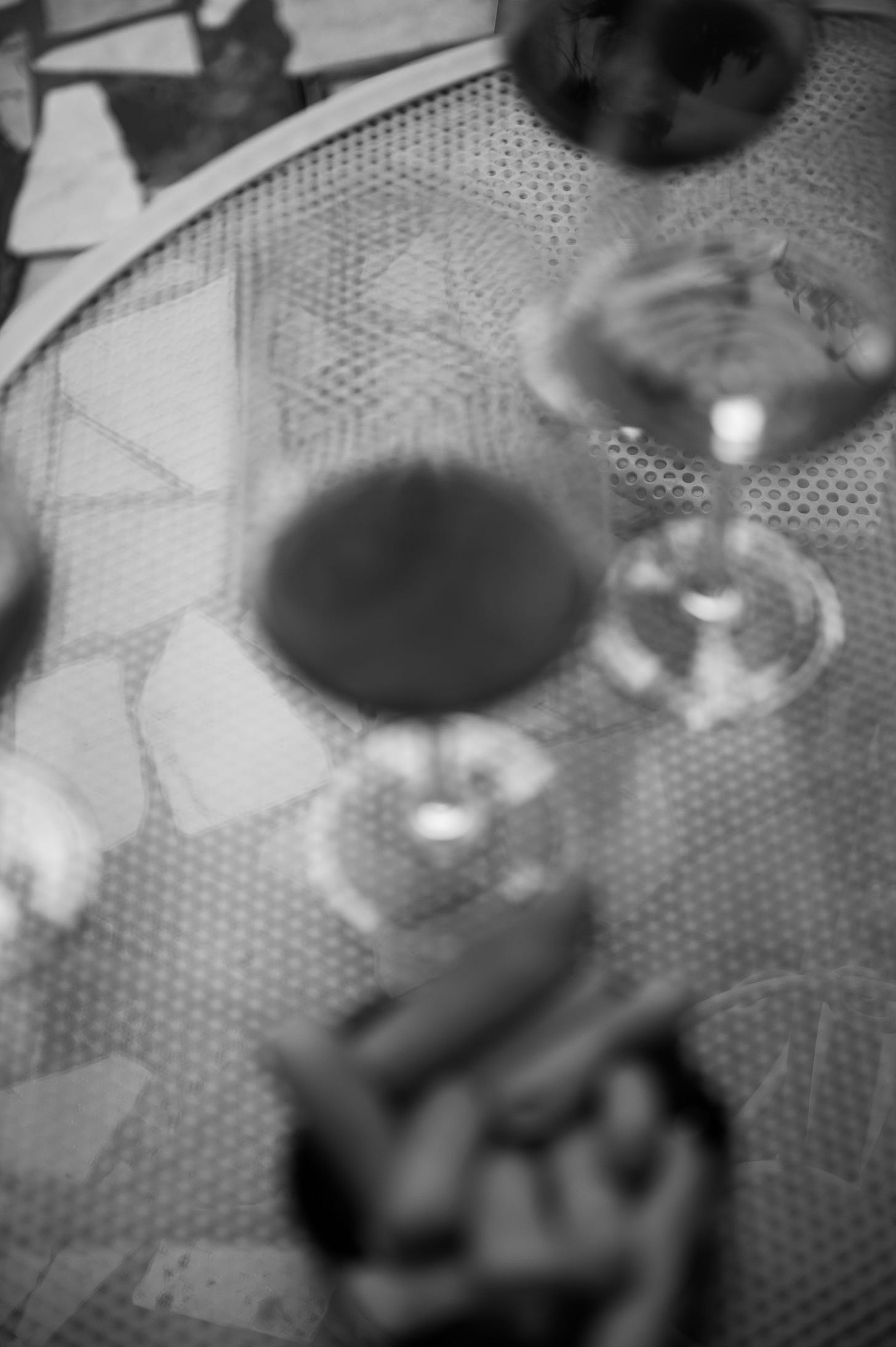Whatever happened to April.
Whatever happened to that span of time between Easter Monday and May First.
I did not intend for it to swing past me. I wanted it to stick, just like I want everything. But the only way I have to make things stick is by writing them down. And I didn’t. So everything has become a blur –– days compressed into weeks and then flattened into a thin foil of overwritten memories.
I have come to terms with the fact that my perception of time is altered. That I don’t see it as a measurable variable. I can rationalise it in that sense, but I can’t really pretend I can manage it in the well-distributed, carefully planned, reverse-engineered way that HR or a parent would appreciate.
Rather, I have learnt that I function on a spectrum of now versus not now. Things either happen now (even if there’s not enough time, or there’d be a better time to do them) or, if they don’t, they get placed into the indefinite sphere of the not now, a black hole from which they resuscitate only if they intersect the space of the now again. The chance that this might happen exists. I just don’t know when that might be.
My entire life I’ve struggled with routines (or lack thereof), with other people’s schedules, with efficiency. My entire life I’ve fought against lateness and, so far, I have lost. This became even more evident this past April. April felt like trying to fit into a pair of jeans two sizes too small: I held my breath and hoped that the button wouldn’t burst. April felt like too much now, like days packed with to-dos with time haemorrhaging out of my life and into something else, someone else’s plans, needs, wants.
And so it’s May.
“You’re just a poor planner.”
“I’m actually a great planner. Planning isn’t the problem.”
“Fine. Then you are overstretched.”
“Maybe. Or maybe –– and I have come to believe this –– the only way for me to write is by getting out of Venice, removing distraction.”
“Or maybe the problem is that we have to work for a living.”
“Also that.”
Labour Day.
At the train station, three blue-suited, white-shirted men stalled in front the pharmacy window to take pictures of an ad for a new, miraculous pain-killer. The claim: this pain killer can take your pain away in an instant, and you can ingest it on an empty stomach. Was it the speed of action or the removal of the burden of having to eat that captured their attention, I wondered?
“This is the perfect incarnation of what the current social and economic system has made of us. We can’t afford to be sick. Not just that, we can’t afford to be sick and have to think about having to eat something or wait a few hours to be better. How fucking dehumanising.”
“You read too much into things.”
“I am touched by unfairness.”
“You are an aesthetic suprematist, what are you even saying.”
“Beauty can teach us lots of things. Beauty in the more philosophical sense of the word teaches us things that productivity won’t ever do. Beauty might seem unproductive and yet it moves things, feelings, ideas. It is conservative in the most positive way. This is why it’s considered elitist, when in fact this is a very convenient story they have been telling us to convince us that it’s best to optimise at any cost –– especially at the detriment of beauty, of unproductivity. See where that sentiment has taken us: we take pictures of pain killers in train stations.”
“We’re late, our train is in three minutes.”
“Tell me something I don’t know.”
Walking behind a young couple from England on my weekend stroll.
“Do you think it’s overrated?” she said, walking hesitantly on her heels as she held onto his forearm.
“You mean Venice? No, I don’t think so.”
“I mean, it’s all so beautiful, every corner of it.”
“Yeah, you’re right,” he said.
“Oh, look! Oh my god I’m gonna take a picture of that,” she said, pulling out her phone.
Her subject: an older lady picking laundry from the line stretching out across the calle. She seemed exhausted, didn’t look at us, just kept pulling the wire, unpinning her stuff. Her bedsheets had a vintage look. A couple of holes could be spotted in transparency as the light of the afternoon pierced right through them.
I relieved her of my stare and resumed my walk, leaving the couple behind me.
Here and there, glimpses of crusted, weathered shutters and mouldy walls. Old towels being used as curtains for privacy, hung with laundry clips on the outside of the window. I imagined inadequate piping and electric wiring, like the ones I saw in many real estate listings; antiquate heating systems that have become a hazard for people’s health and for the survival of the building. I imagined the people inside these places, and my stomach twitched.
Poverty in Venice is often overseen or hard to conceive because the city really is beautiful, every corner of it. Because even its crumbliest, crustiest bits are aesthetically pleasing in a way. Venice’s decay feels like an hyperbole of the concept of decay itself, exaggerated, like a theatrical mask that emphasises a certain face expression, a Platonic form of decay that makes it ideal even when it’s not. Perhaps this is why no one believes it exists for real: it’s so perfect that it seems staged.
The stories we tell ourselves.
I don’t do long-term plans, the test said. I execute well, I have a strong sense of duty, but I lack foresight. This is what the results returned.
“What is important to you?” the test guy asked me.
“Silence. Writing. And walking.”
“Do you plan and make time for these things?”
“I try to.”
“How much time do you devote to writing every week?”
“I don’t devote. It depends on many factors.”
“You should devote. How much time do you devote to walking?”
“I walk all the time. I live in Venice.”
“Right, but I mean walking-walking, not going from point A to point B.”
“Not much, lately. I’ve been busy. April is a busy month.”
“So you don’t do any of the things that are important to you.”
“There are other important things: making a living, keeping the house clean, seeing friends, reading, cooking and eating. I live alone. I can only do so many things.”
Foresight, decision making, boundaries, he jotted down on the chart.
Some people live on the now and not-now spectrum, I wanted to add, but it felt difficult to explain. Instead, what I said is: “I struggle with positivism.”
“You mentioned cooking and eating. Are these important to you?”
“They used to be important. Then I managed to turn them into a job and it all went downhill from there. I still cook, just not as much as I used to. I do it as a creative outlet, to feel the passing of time, and to rest my mind.”
“Tell me about it.”
On a sunny Sunday in early April, my enthusiasm for the first spring produce of the season led me to the greengrocer to buy two big bunches of thin wild asparagus, a bunch of monk’s beard, plus baby lettuce and radish. All these vegetables lived in the sphere of the now: they had to be bought right then, or else they might never be.
At home, with the windows sprung open to let in an unseasonably warm air and let out the sweet scent of soffritto, I prepared them all.
Monk’s beard was trimmed and fried in anchovy butter, then tossed with pasta and showered in breadcrumbs. Radishes and lettuce became a crunchy salad with a mustard-lemon dressing to go with primosale cheese. Asparagus were swiftly blanched until they turned emerald-green. Some were stir-fried in butter and eaten for breakfast with fried eggs and toast. Others were chopped for risotto, stored in a container and frozen, hoping to be remembered and thawed some day soon.
My freezer: a perfect representation of the not now.
It’s 3.30 am when I’m typing this. I am devoting time to writing, I’d like to tell the test guy, just not in the way I probably should. The now has its reasons which reason knows nothing of. Is this an inconvenient time? Should I be sleeping instead? Too bad.
The time of now has eventually come for the part about walking, too. After months of talking about it to anybody asking about my summer plans, preparations have finally begun for my next solo hike. They started in the middle of a workday in which I had many urgent things I needed to accomplish, but again, it is what it is. I researched a handful of new trails, settled on one, made a fresh spreadsheet, decided the dates, reached out to the B&Bs to secure accommodation. In a day, the plan was made.
Now, it’s all I am looking forward to.
But this is a story for another day. A story about long-distance walking and how it became something I can’t do without even if I’ve done it so little, so far. Solitude, a new scenery, my body moving through space, alert, instinctual, unsubjected to the tyranny of time. A space in which I flow uninterruptedly and, as I do, I come back.








Valeria, I know exactly how you feel. If you somehow find a way to balance the now and not now, please let me know.